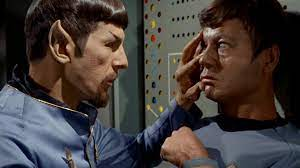In Environmental Ethics today I'll reiterate my concern that the two generic mindsets Wendell describes (in Two Minds) in mutual opposition, Rational and Sentimental, are better represented not as opponents but as dual aspects of the singularly inclusive mind we're going to have to develop if we're to think and act rationally, humanely, and sustainably about life--all life, not just ours and not just now--on Earth.
The Rational Mind, without being anywhere perfectly embodied, is the mind we all are supposed to be trying to have. It is the mind that the most powerful and influential people think they have. Our schools exist mainly to educate and propagate and authorize the Rational Mind. The Rational Mind is objective, analytical, and empirical; it makes itself up only by considering facts; it pursues truth by experimentation; it is uncorrupted by preconception, received authority, religious belief, or feeling. Its ideal products are the proven fact, the accurate prediction, and the “informed decision.” It is, you might say, the official mind of science, industry, and government.
The Sympathetic Mind differs from the Rational Mind, not by being unreasonable, but by refusing to limit knowledge or reality to the scope of reason or factuality or experimentation, and by making reason the servant of things it considers precedent and higher.
His Rational Mind is a caricature, the narrow stoic/Vulcan sort of sensibility fixated on a perverse logic that disregards its practitioners' humanity (even Spock was half human) combined with a rapacious, extractive capitalist "free"-market non-ethos committed to short-term profiteering and long-term indifference.
I don't for a moment deny the existence of Rational minds of that sort, including a disproportionate percentage of plutocrats, politicians, and CEOs. I just resist ceding the concept of rationality to them, and failing to notice the larger and more humane values of many rationalists whose minds do in fact express sympathy for small farms and farmers, for people over profit, for a livable future for the many over the present greed of the few.
As we prepare to observe the 21st (!) 9/11 anniversary, let's acknowledge that the terrorists who brought down the towers (etc.) were not model representatives of any plausibly constructed rational mind. They were fanatical zealots who did not respect humanity or value life, except for that slice of it that replicated their own zealotry.
[It is perhaps not incidental that Wendell wrote his reductively dichotomous essay not long after 9/11/01, a time when many found themselves grasping desperately for a rational comprehension of the incomprehensible.]
Wendell says the "optimists of scientific rationalism" are "scornful of limits," but that sounds to me less like a description of the sober scientists who've documented climate change and tried to convey their informed alarm to a distracted and disinterested public than of the relatively marginal techno-utopians, trans- and post-humanists, and Silicon Valley billionaires (and Musk and Bezos) who want to "live" (or be digitized and uploaded) forever. Maybe they're less marginal than I want to believe, in their Money=Power world, but I think it important to avoid tarring conscientious practitioners of evidence-based inquiry with gross general epithets and conflationary put-downs.
And so, to Wendell's conclusion that
conservationists have not done enough when they conserve wilderness or biological diversity. They also must conserve the possibilities of peace and good work, and to do that they must help to make a good economy. To succeed, they must help to give more and more people everywhere in the world the opportunity to do work that is both a living and a loving. This, I think, cannot be accomplished by the Rational Mind. It will require the full employment of the Sympathetic Mind – all the little intelligence we have.
I say neither Upper Case Mind will do, standing alone. All the intelligence we have can't be little, it must include reason and sympathy (feeling, passion, sentiment) and every other responsive tool in our chest, standing or falling together. Are there really just two kinds of minds? Only if one of them is the kind that resists dichotomous reduction.
In CoPhi today it's Augustine, Boethius, Anselm, Aquinas, free will (with and without "strings" attached), and another opportunity to point out the limits of rational demonstration. I always try to muster more sympathy for those who want to prove the existence of a god than I instinctively feel, since I know that my own sense of the empowerment and responsibility we can derive from what I consider the right kind of godlessness is not universal among my fellow humans nor (particularly) among my fellow Tennesseans. We have to share this place, this land, this common ground.
We're not all looking for credible reasons to back our beliefs, we're not all humble fallibilists when we assert our respective faiths and credos. But a great many of us are. Those are the rational (note the lower-case "r") humans whose minds try to make room for sympathy, empathy, fellow-feeling, tolerance, mutual support, and co-existence. Good communities are populated by such people. Wendell knows them. They're not caricatures, they're not rigidly Rational and Sympathetic.
As Mr. Spock used to say, when mind-melding: your mind to my mind, our minds are one etc. We can simulate the meld, not by a laying on of hands but by listening to one another and exercising a little of the imagination that begins to compensate for our ancestral certain blindness.
Finally this evening I'll rally what remains of my mind at 6 pm, when any sensible day should end, to head over to the Wiser-Patten Science Building and talk with the MALA class about Carl Sagan's cosmic philosophy. The subject is fundamentally the same: the wondrous worlds of possible experience open to those who open their minds.


No comments:
Post a Comment